Manchester Arena bombing: Mayor calls for tighter security at events
- Published
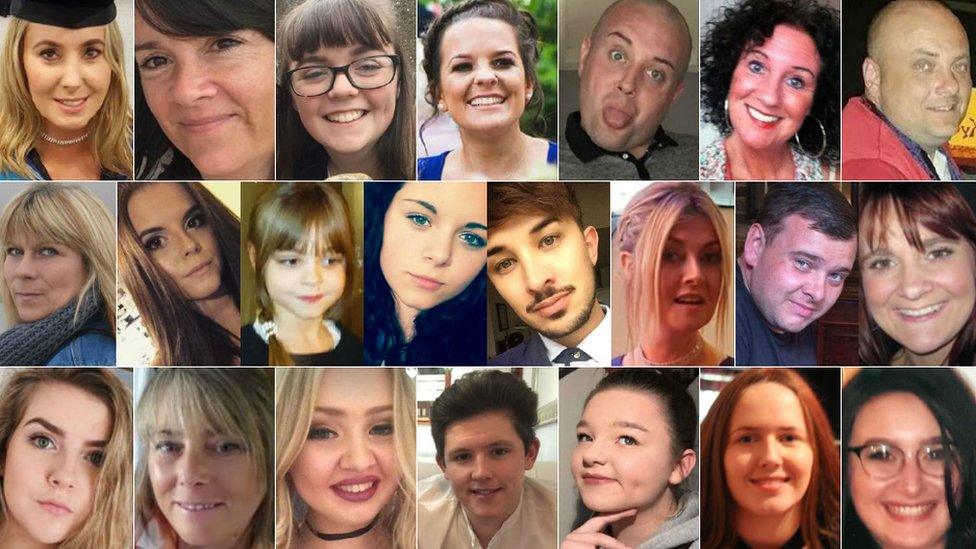
Twenty-two people were killed in the blast at an Ariana Grande concert on 22 May 2017
The government should introduce compulsory bag searches and metal detectors at major venues following the Manchester Arena attack, the city's mayor has said.
Andy Burnham backed calls from victims' families to see security stepped up in an update to a report into the bombing.
Twenty-two people died when Salman Abedi detonated a device in May 2017.
Security Minister Ben Wallace said the government's "utmost priority is protecting our citizens".
Mr Burnham commissioned the report by Lord Kerslake into the response by emergency services to the suicide bombing, which happened at an Ariana Grande concert.
The update also said the city's fire service underwent a "root and branch review" after criticism of its response.
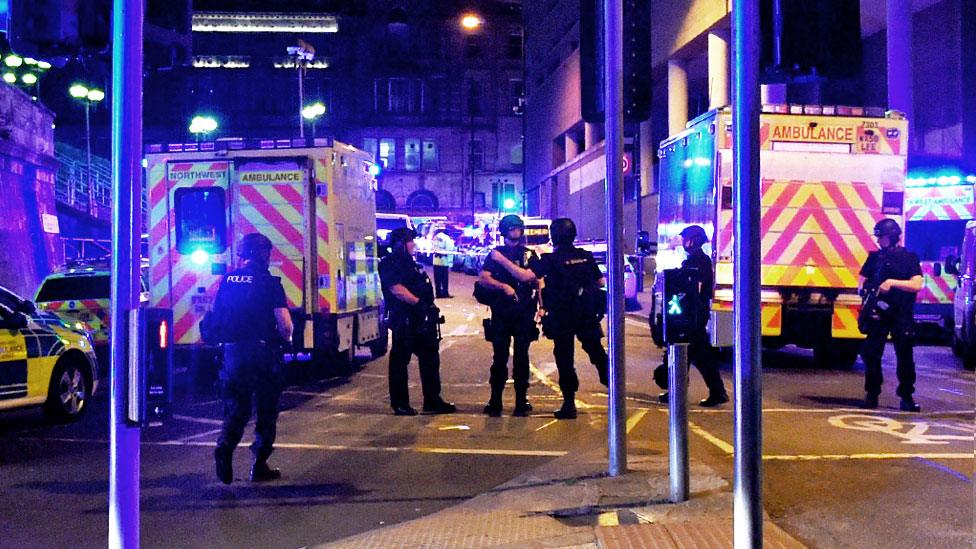
Chief fire officers were "risk-averse" and kept emergency trained responders away, the Kerslake Report said
In a progress report, Mr Burnham supported calls made by Figen Murray, the mother of victim Martyn Hett, 29, for the introduction of "Martyn's Law", which would make metal detectors and bag searches obligatory for big public venues.
He said there "was a clear case for a thorough review of security measures at major sporting and entertainment event venues" to set out minimum standards that would offer "confidence for the public".
Security Minister Ben Wallace said: "Last June we published a strengthened version of the UK's comprehensive counter-terrorism strategy, Contest, which reflects the findings of a fundamental review of all aspects of counter-terrorism, to ensure we have the best response to the heightened threat in coming years."
He added that the government was "open to suggestions" on what more could be done to protect the country from terrorism.
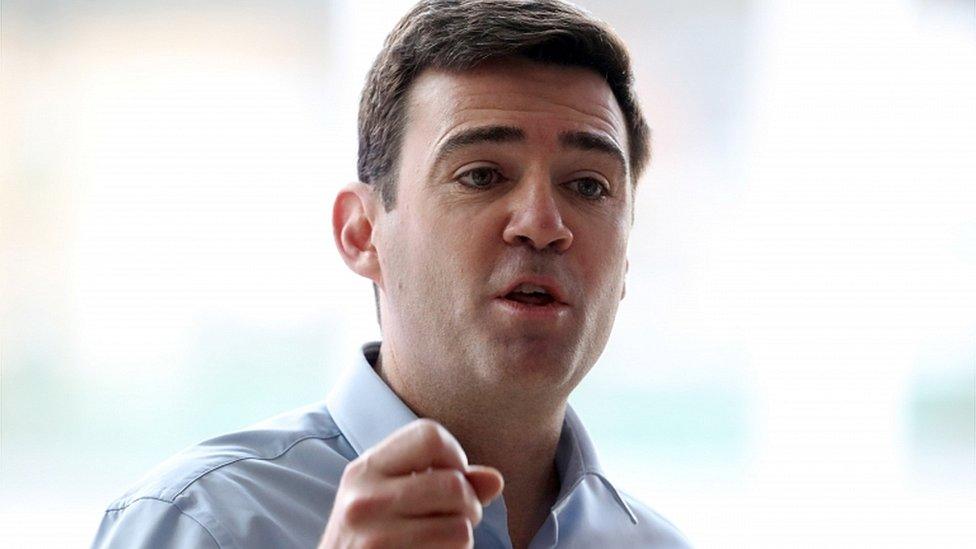
Andy Burnham said guidelines did not go far enough to prevent bereaved families from being hounded by the media
The update also set out progress made by Greater Manchester Fire and Rescue Service (GMFRS) to refocus on frontline services in light of recommendations made in the March 2018 Kerslake Report, external.
It found firefighters, some of whom heard the bomb go off and were trained in first-aid and terror scenarios with specialist equipment, did not get permission from senior fire officers to go to the scene until hours later.
According to the latest update, changes to the brigade's command structure would put a senior officer on the scene of any future terror incident to act as commander and allocate resources.
The report also noted that GMFRS was "currently unable" to respond to a marauding terrorist attack due to a national dispute between the Fire Brigades Union.
It said Merseyside Fire and Rescue Service would "provide this resource if needed" as an "interim measure".
Mr Burnham added he did not believe steps taken by media watchdog, the Independent Press Standards Organisation, to provide guidelines on reporting major incidents went far enough to prevent breaches of the existing Editor's Code.
Some bereaved relatives said they felt "hounded" by the press in the aftermath of the bombing.
- Published20 August 2018

- Published27 March 2018
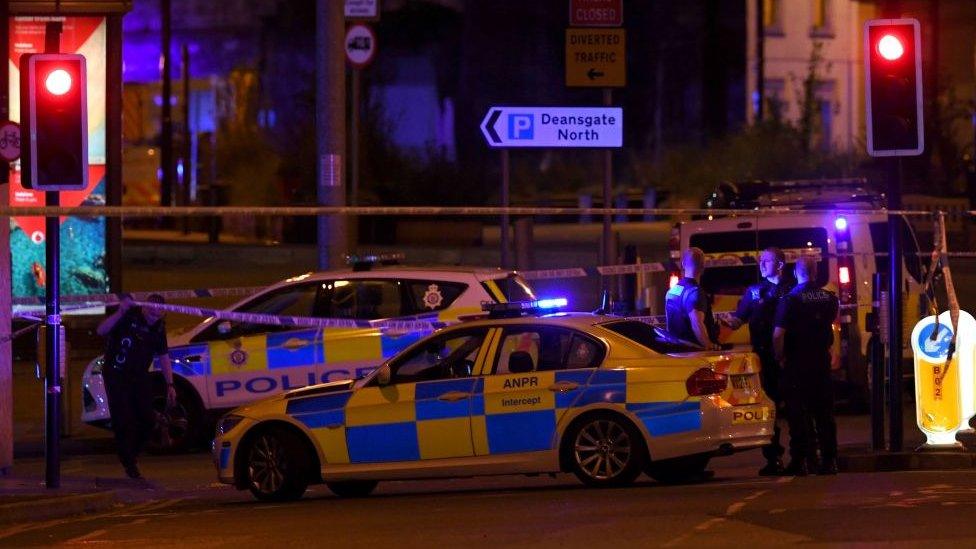
- Published27 March 2018

- Published27 March 2018
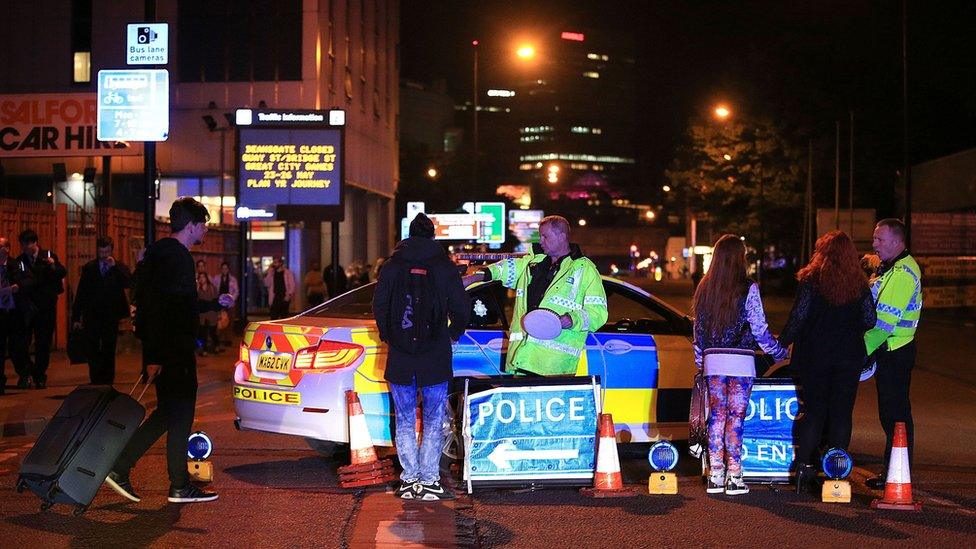
- Published3 November 2022
